For the country to thrive in the new era, it is necessary for private economic groups to rise to the level necessary to become leading enterprises leading the economy.
Hanoi Moi Newspaper has launched a series of articles: "Aspirations of "leading cranes" - New driving force for Vietnam's private economy" , identifying bottlenecks, proposing breakthrough policies to develop the private economic sector, building a generation of Vietnamese entrepreneurs with courage and ambition, contributing to shaping the country's new position in the era of rising, becoming rich and prosperous.

Lesson 1: The "order" of the leaders
Many times in high-level forums, leaders of the Party, the State and large localities have mentioned the dream called "Vietnam's private group of international stature". But between the reality of the economy and that big dream is a challenging gap. Together with Hanoi Moi Newspaper, let's take a look at the overall role of the private economy today, the big paradox that exists and the new strategic thinking that is making a breakthrough, "giving wings to fly" for this economic sector.
The weight of a national aspiration
From the National Assembly to investment promotion conferences, from strategic speeches to specific policy statements, a common message is resounding louder and louder: Vietnam needs “leading cranes” – private corporations with scale, global competitiveness and the courage to lead the domestic business ecosystem.
General Secretary To Lam, in an article titled "Private Economic Development - Leverage for a Prosperous Vietnam" in March 2025, affirmed: "The private economy needs to strive to become the main force, leading in the application of technology and innovation, to achieve the goal of contributing about 70% of GDP by 2030; more and more private enterprises have the capacity to compete globally, master technology and deeply integrate into international value chains and supply chains; together with the whole country, build a dynamic, independent, self-reliant, self-reliant and prosperous Vietnam." Not only is it an orientation, it is a strategic command for national development.
The image of "leading cranes" has also become a symbol in the messages of Politburo member and Prime Minister Pham Minh Chinh. At many forums, the head of the Government always emphasizes the need to build Vietnamese enterprises with scale, prestige, national brands and the ability to compete fairly in the global market. This aspiration originates from the fierce competition law of the world economy. A country that wants to be autonomous and have a position on the economic map cannot do without its own pillar enterprises, its own "giants".
At a major economic forum in the capital on June 20, 2025, Central Party Committee member, Deputy Secretary of the City Party Committee, Chairman of the Hanoi People's Committee Tran Sy Thanh made a direct "order": Hanoi needs private corporations that are large enough, strong enough, and capable enough to not only lead the capital's economy but also reach out to the region and the world. That order not only reflects specific expectations from the city government, but also symbolizes a profound change in development thinking - where the private economic sector is no longer on the sidelines but is at the center of the aspiration to build a prosperous nation.
The dream of Vietnamese enterprises with international brands is no longer a distant dream. In fact, many corporations such as Vingroup, Masan, Thaco... have been growing strongly. Vingroup is not only a real estate developer but also an automobile and high-tech manufacturer with the VinFast brand that has resonated in the US and European markets. Masan is a leader in the consumer goods and processed food market, and is expanding into consumer finance and mining. Thaco is a pioneer in the automotive industry and integrated logistics...
These names not only create jobs, pay taxes or increase revenue. More importantly, they have been “paving the way” for tens of thousands of small satellite businesses, standardizing the value chain, spreading the culture of innovation and laying the foundation for an independent, modern and self-reliant national economy.
However, behind those bright spots lies a big paradox: Vietnam has a private economic “forest” with more than 940,000 enterprises and 5 million business households, but most of them still lack capacity, vision and a supporting ecosystem. By the end of 2024, the private economic sector will contribute about 51% of GDP, creating 85% of jobs, but 98% of them are small and micro enterprises. Small enterprises often only participate in the lowest link in the value chain - processing, assembly, or consumer retail. Without “big trees”, the business ecosystem will always be fragmented, unconnected, and vulnerable to global shocks.
Speaking to reporters of Hanoi Moi Newspaper, Dr. Le Xuan Sang, Deputy Director of the Institute of Vietnam and World Economics, said that this is a structural challenge of the economy. Dr. Le Xuan Sang analyzed: "The absence of large private corporations not only reduces national competitiveness but also creates a rift in industry linkages. It is very difficult for small and medium-sized enterprises to grow on their own without the guidance and connection from leading enterprises, especially when the State's support is ineffective and untimely. The core issue is to create a truly equal, transparent and highly predictable business environment. When the environment is good, businesses will find their own way, and excellent businesses will naturally rise up. The State needs to focus on the role of creating ecosystems, promoting linkages between small and medium-sized enterprises with large enterprises and FDI enterprises, instead of directly intervening. Only then will businesses have high resilience, increase competitiveness, and contribute significantly to helping Vietnam achieve ambitious economic goals in the new era."

New thinking, new determination
The question is: Why is there a lack of private corporations of regional and global stature in an economy with a highly open workforce and a strong entrepreneurial spirit? The answer lies not only in the enterprise itself, but more importantly in the institution - the way the State designs and operates the development ecosystem. For a long time, the development of the private economy has been influenced by the "ask - give" mindset, old prejudices about the role of entrepreneurs and also vague and unstable legal barriers. The business support system tends to be supervisory, not strongly shifting to creation.
Change is coming. Resolution No. 68-NQ/TU dated May 4, 2025 of the Politburo on private economic development states: “The private economy is the most important driving force of the national economy”. This is a major turning point, eliminating skepticism and affirming the central role of the private sector in all development policies.
The “orders” from senior leaders - the General Secretary, the Prime Minister and then the Chairman of the Hanoi People’s Committee - are a strong signal. But for the “leading cranes” to take off, it is necessary to transform those expectations into concrete actions. That is the completion of a modern, safe and predictable legal ecosystem. That is the selective mechanism - prioritizing investment and focused support in areas with spillover effects: digital technology, logistics, renewable energy, high-tech agriculture... That is the State not only acting as an “arbitrator”, but also as a “trainer” - supporting human resource training, infrastructure development, venture capital funds and credit guarantees for businesses with breakthrough potential.
Vietnam is facing a major crossroads: Either continue to maintain a “truncated pyramid” economy - with many small businesses but no leading corporations; or boldly choose, invest, protect and empower businesses with aspirations to become “leading birds”. If we want a new generation of Vingroup, Masan, Thaco, FPT, Hoa Phat, Sovico, Trung Nguyen, BIM Group..., we need to create conditions for them to form. There must be an “incubator” at the institutional level.
It is not just a matter of growth or export, the “leading cranes” carry a greater mission - to inspire a new generation of entrepreneurs, spread the aspiration for nation building and affirm Vietnam's mettle on the world economic map.
It is time for private enterprises to not only be companions, but also pioneers for an independent, self-reliant and prosperous Vietnam. To do so, private enterprises need to be “given wings” by superior mechanisms.
( More )
Source: https://hanoimoi.vn/khat-vong-seu-dau-dan-dong-luc-moi-cho-kinh-te-tu-nhan-viet-nam-715487.html



![[Photo] Hanoi morning of October 1: Prolonged flooding, people wade to work](https://vphoto.vietnam.vn/thumb/1200x675/vietnam/resource/IMAGE/2025/10/1/189be28938e3493fa26b2938efa2059e)






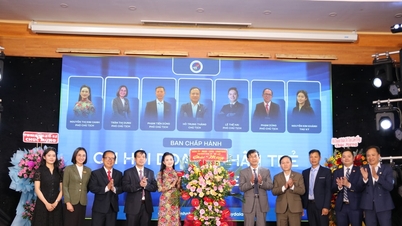

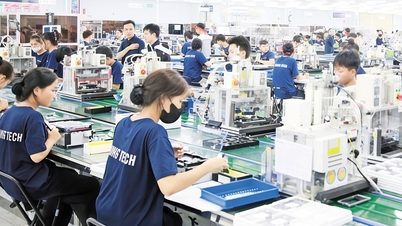



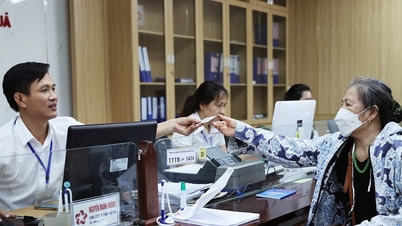


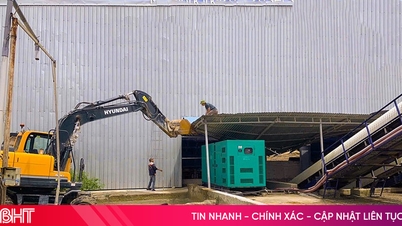

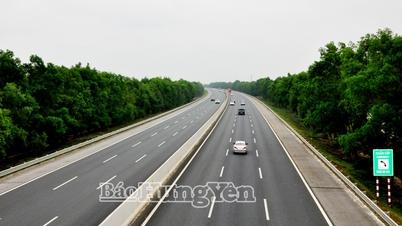











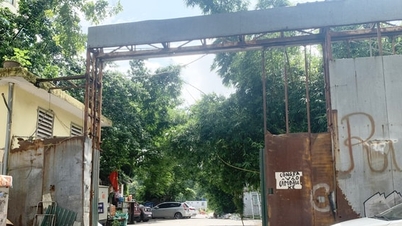

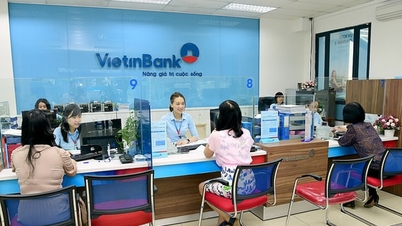
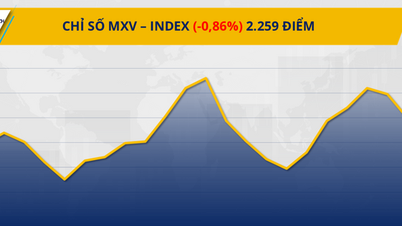


![[Photo] The 1st Congress of Phu Tho Provincial Party Committee, term 2025-2030](https://vphoto.vietnam.vn/thumb/1200x675/vietnam/resource/IMAGE/2025/9/30/1507da06216649bba8a1ce6251816820)
![[Photo] Panorama of the cable-stayed bridge, the final bottleneck of the Ben Luc-Long Thanh expressway](https://vphoto.vietnam.vn/thumb/1200x675/vietnam/resource/IMAGE/2025/9/30/391fdf21025541d6b2f092e49a17243f)
![[Photo] President Luong Cuong receives President of the Cuban National Assembly Esteban Lazo Hernandez](https://vphoto.vietnam.vn/thumb/1200x675/vietnam/resource/IMAGE/2025/9/30/4d38932911c24f6ea1936252bd5427fa)

























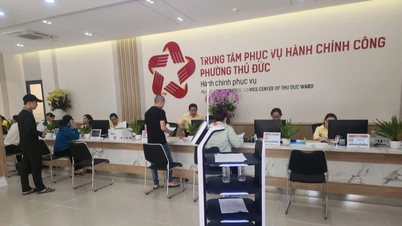


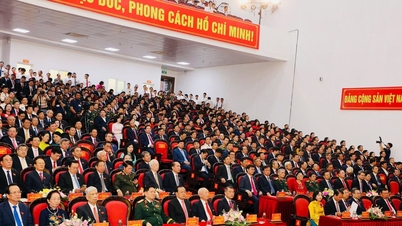

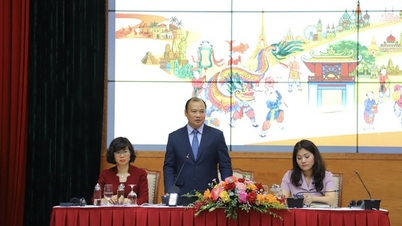



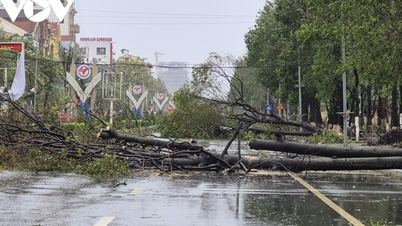























Comment (0)